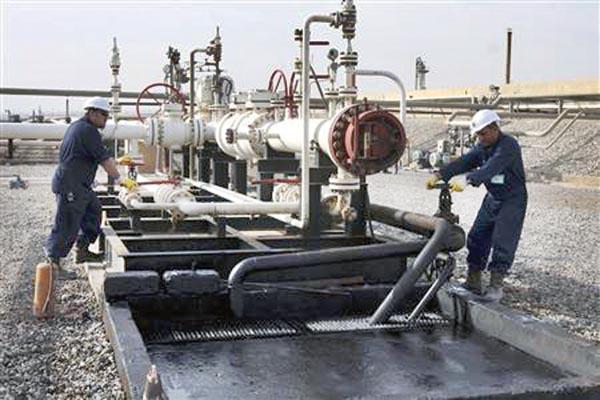LONDON — The flow of oil through a new pipeline to Turkey from Iraq’s Kurdish region is a boon for the small oil companies that took a risk to explore there, who at last see the chance to earn steady export income from their investments despite the strong objections of the government in Baghdad.
The Kurdistan Regional Government (KRG) said on Wednesday that the first crude had started to flow through the new pipeline across Turkey. Exports are expected to begin at the end of this month and will ramp up in February and March, it noted.
“We’ve been waiting to read these words and hear these words since 2007,” said Todd Kozel, chief executive of Gulf Keystone which has Kurdish government approval to exploit what it says is one of the largest onshore exploration fields in the world.
“It’s music to any operator’s ears in Kurdistan. It’s the monetisation of our assets,” Kozel said in an interview.
Iraq’s central government stressed on Thursday it still opposed the shipments, which it considers illegal without its blessing.
“No approval is given,” Deputy Prime Minister for Energy Hussain Al Shahristani said in an e-mail to Reuters.
Although the early flows are predicted to be modest, the move has the potential to redraw export routes across the region. Kurdistan’s bid to sell oil and gas independently from Baghdad has infuriated officials in the Iraqi capital, which claims sole authority to manage all Iraqi oil.
Shares in London-listed Genel Energy were up 4.63 per cent and Norway’s DNO was up 2.05 per cent on Thursday. Both companies already supply oil to the new pipeline from fields in Kurdistan, according to the KRG.
“Overall, [the news is] supportive for Kurdistan-focused Genel and provides confidence that the prospect of pipeline exports has become an increasing reality,” Deutsche Bank said in a note.
Other companies that aim to produce oil in Kurdistan but don’t yet use the pipeline also saw shares rise, including London-listed Gulf Keystone, which separately announced on Thursday that it had begun exports of Kurdish oil by truck. Its shares were up 1.13 per cent.
Kozel said his company was working with the KRG to send its oil through the pipeline “as soon as possible” but was using trucks for now because of the logistical hurdle of connecting its field to the pipeline. He indicated that Gulf Keystone aims to achieve output of 100,000 barrels per day in 2015.
Shares in Hungary’s MOL and Britain’s Petroceltic and Afren also traded higher.
“[Kurdish] government confirmation of the expected ramp-up in piped exports will be viewed as a positive today,” Numis analyst Sanjeev Bahl said, adding that Genel and DNO would be the main beneficiaries.
Windfall
Iraq’s northern Kurdish region, made up of three mountainous provinces on the Turkish frontier, has blossomed economically under self rule as the only part of the country to escape the violence unleashed after the US invasion in 2003.
Iraq’s constitution mandates that all Iraqi oil revenues go through the central government in Baghdad, and the Kurds then receive 17 per cent. The windfall has brought prosperity to their small region, although the Kurds frequently complain that they have received less than their full entitlement.
Although most of Iraq’s oil is now produced in the south, the northern Kurdish provinces have largely untapped oil fields of their own, and the Kurds also have territorial claims to the oil-producing region of Kirkuk.
Kurds want the right to manage their own oil industry, and say they will channel revenues to the central government for the benefit of all Iraqis. But politicians in Baghdad fear any such move could one day lead the Kurds to seek independence and try to seize control over Kirkuk.
The Kurdish government has invited bids to buy the first shipment of two million barrels of oil to be piped to Turkey this month.
It says it will then offer four million barrels in February and six million in March, rising to 10-12 million barrels by December, an amount that would be equivalent to around 10 per cent of Iraq’s oil output. That would put the Kurds well on their way to being able to raise as much money on their own as they now get from Baghdad.
Baghdad has pressed large international oil companies not to do business with the Kurds, initially leaving the field open to smaller firms like Genel, DNO and Gulf Keystone. In 2011, ExxonMobil become the first oil major to sign an agreement with the KRG over Baghdad’s objections, and Total and Chevron have followed suit.
Shares in the small firms operating in Kurdistan have fluctuated based on political sentiment, rising when it appears that the Kurds are closer to securing the means to export via Turkey. Gulf Keystone’s Kozel remarked that the political risk was exaggerated.
“A year ago you didn’t have an agreement with Turkey, you didn’t have a pipeline. Political risk for Kurdistan is a lot less than political risk for the Middle East in general,” he indicated.
Analysts at HSBC upgraded Genel to overweight on Thursday, giving it an additional boost. They cut their rating on DNO to underweight however, citing a recent surge in its share price by 160 per cent.












